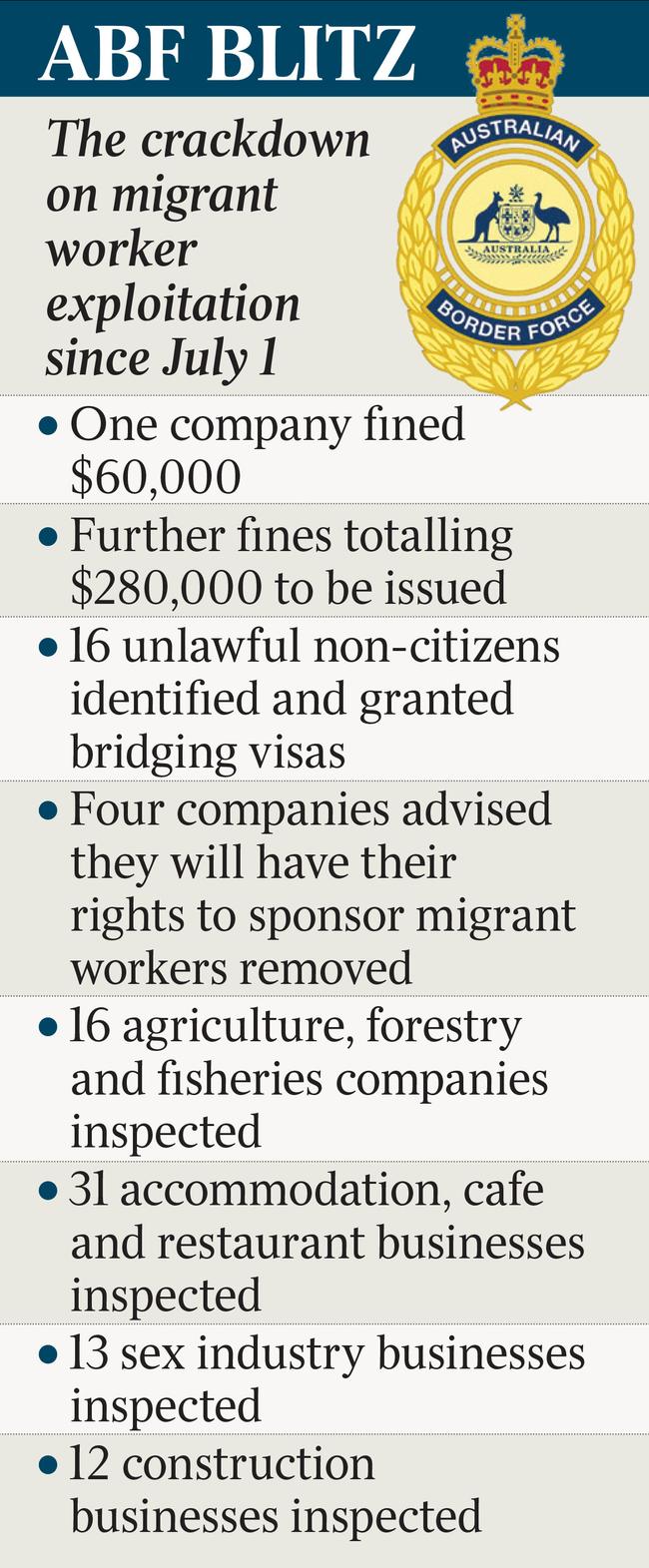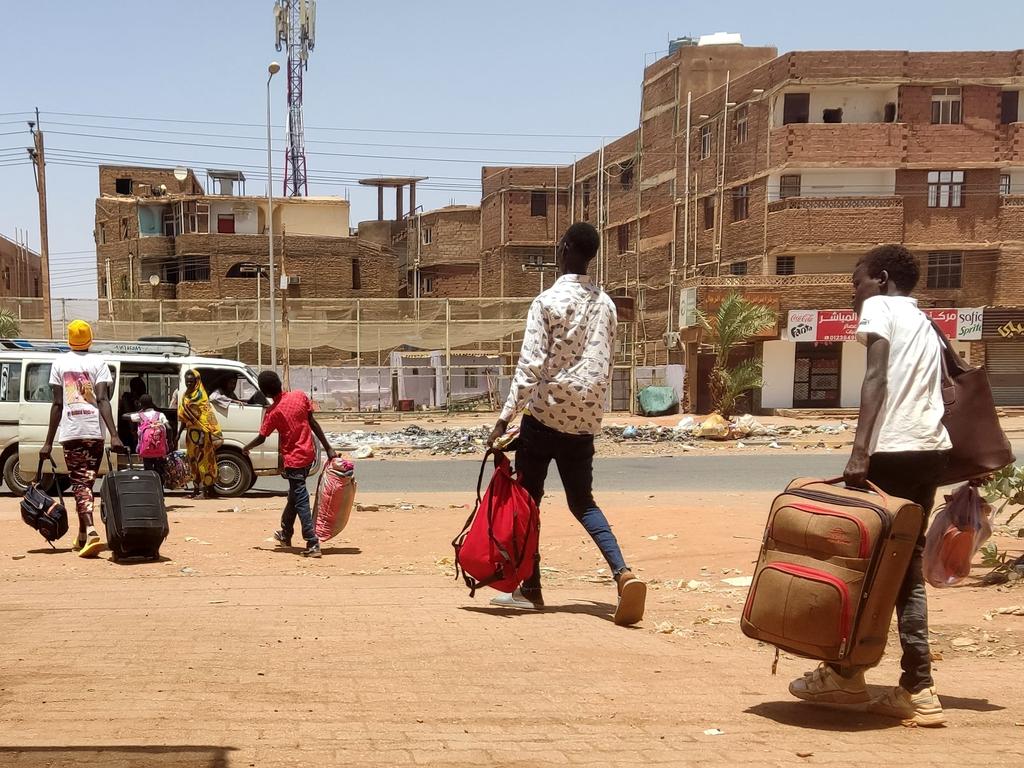Companies exploiting migrant workers hit with fines and bans in Border Force blitz
Restaurants, farms, construction companies caught exploiting migrant workers hit with fines and bans in Australian Border Force operational blitz.

Businesses taking advantage of migrant workers by underpaying them, overworking them or fleecing them of penalty rates, overtime and superannuation are in the cross hairs of the Australian Border Force, which has launched an enforcement blitz on companies sponsoring migrant workers.
Since July 1, more than 170 companies have been raided or inspected by ABF officials to ensure they were complying with requirements to fairly pay foreign employees they had sponsored to work in Australia.
Farms, labour hire companies, restaurants, beauty salons and construction companies have all been the subject of ABF inquiries, with dozens facing sanctions ranging from warning letters to fines or potential criminal charges.
Others are being banned from sponsoring workers into Australia and will be named and shamed on a public register maintained by the ABF.

Border Force deputy commissioner of regional operations Vanessa Holben has warned businesses that exploit their sponsored migrant workers to “be ready … No business under this arrangement is immune from us having a look at their practices’’.
“The exploitation of workers hurts everyone,” she said. “It will hurt the business because we will go after the business. It hurts the Australian economy and other community members.
“As we work collectively with other agencies, we can start hopefully to disrupt businesses that are engaging in this sort of behaviour, and take them out of business.’’
A taskforce investigating exploitation of vulnerable migrant women in the sex industry, Operation Inglenook, was established in November and resulted in the ABF deciding to expand its inquiry into other industries where migrant workers were sponsored to work in Australia.
In just two weeks, offences generating fines of more than $300,000 were discovered, and IT workers, farm labourers and people working in hospitality were found to have been ripped off by their employers.
Some received no overtime, penalty rates or superannuation and some were paid in cash, meaning the employer dodged their taxation requirements.
Ms Holben said more than 4000 visas were available to people entering Australia, and a large part of the ABF work with sponsoring companies was education, and ensuring companies understood their responsibilities.

The sponsor-monitoring unit, and ABF field officers, were focused on the business, not the individual worker. “It’s really about targeting the businesses and the facilitators of (exploited) migrant workers,’’ Ms Holben said.
“It’s all about fairness in the system and ensuring that all workers are treated fairly, that they’re paid commensurate to Fair Work, to ensure that obviously there’s a level playing field for workers, whether migrants or Australians.’’
In some extreme cases in the past, ABF officials had found workers being underpaid, or working excessive or unreasonable hours or duties by predatory bosses who withheld passports or forced them to pay off large debts.
Serious cases are referred to the Australian Federal Police for investigation. Mostly, cases involve workers not receiving correct pay and entitlements, and often end up being referred to the Fair Work Ombudsman.
“There are protections in place for workers if they’re exploited,’’ Ms Holben said, adding exploited workers were given 60 days to find new employment after a raid, or 90 days if they lived in the regions.
The ABF receives information on dodgy employers through intelligence reports, and referrals from Border Watch, a program encouraging members of the public to dob in companies doing the wrong thing by its workers.
The ABF sponsor monitoring unit, which undertakes education and compliance work with sponsoring businesses, also obtains information that can be used for enforcement activities.
Ms Holben said the ABF was focused on Australian-based and overseas facilitators who brought migrant workers to Australia to be exploited. Many of these people were themselves foreign nationals. Serious cases investigated by the AFP could be dealt with under modern slavery and human trafficking laws.
She said many migrant workers being exploited, particularly in the sex industry, were vulnerable, and under pressure to financially support families back in their home countries.
In some instances exploitation of workers might also be an indicator of organised crime and money-laundering, which were also matters referred to the police.
Ms Holben said for the most part, workers “are supporting (family) and there’s pressure … which forces them into situations they didn’t think they’d be in’’.







